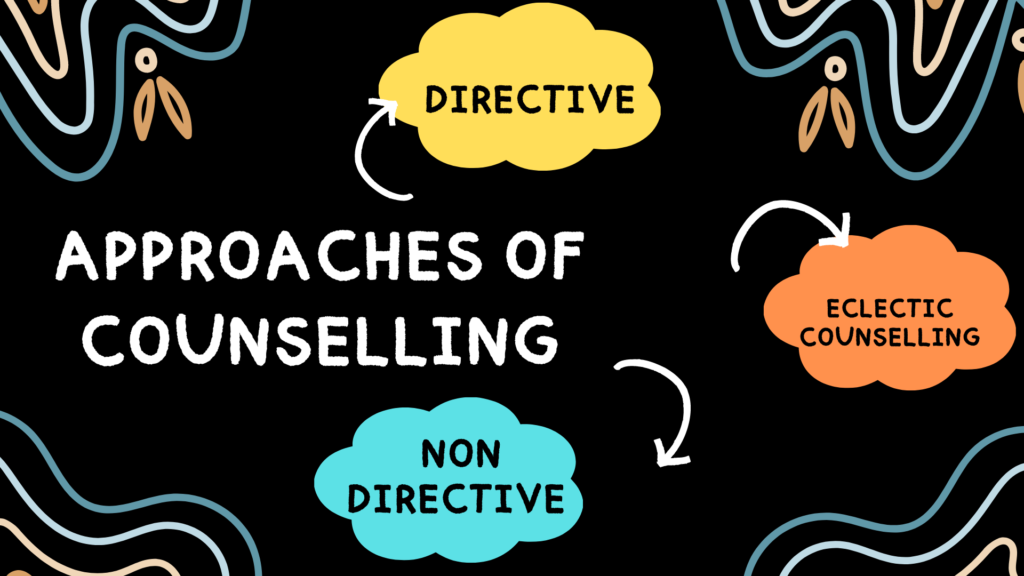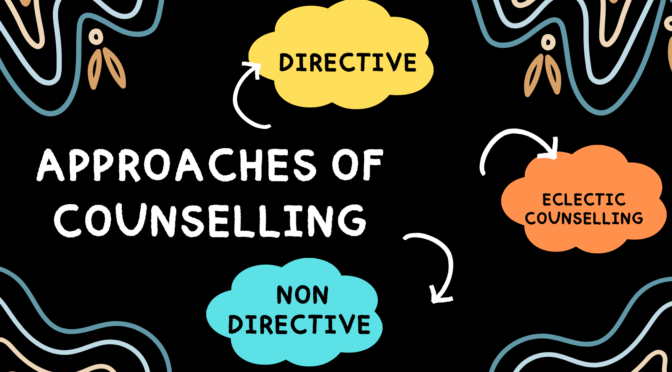Counseling is a form of therapy that aims to help individuals resolve personal, emotional, or psychological difficulties through various approaches. There are different approaches to counseling, including directive, non-directive, and eclectic counseling.
Here’s a brief overview of each:
- Directive Counseling: In this approach, the counselor takes an active role in guiding the counseling process. The counselor sets goals and objectives, establishes a treatment plan, and provides advice and solutions to the client. The counselor may use various techniques such as role-playing, cognitive-behavioral therapy, and other behavioral interventions to help the client reach their goals.
- Non-directive Counseling: Also known as client-centered or person-centered counseling, this approach emphasizes the client’s autonomy and self-determination. The counselor acts as a facilitator, encouraging the client to explore their feelings and thoughts without imposing any judgments or advice. The focus is on the client’s subjective experiences and helping them to develop a greater understanding of themselves and their concerns.
- Eclectic Counseling: This approach combines techniques from different counseling models to create a tailored treatment plan for each client. The counselor may use a mix of directive and non-directive approaches, drawing on various theories and methods to address the client’s specific needs. Eclectic counseling can be useful when one specific approach is not effective or when clients have multiple issues that require different interventions.
Overall, the choice of counseling approach depends on the individual’s needs, preferences, and goals. A skilled counselor will use their knowledge and expertise to choose the most appropriate approach and tailor it to meet the client’s unique needs.
Also Read : Types of Guidance

Also Visit : Prep with Harshita


Thank you for providing me with these article examples. May I ask you a question? http://www.hairstylesvip.com
Thanks for the advice on credit repair on this amazing site. A few things i would offer as advice to people is always to give up the particular mentality that they’ll buy at this moment and shell out later. As a society most people tend to repeat this for many things. This includes trips, furniture, plus items we’d like. However, it is advisable to separate the wants out of the needs. While you’re working to raise your credit score you really have to make some trade-offs. For example you possibly can shop online to save money or you can look at second hand shops instead of pricey department stores with regard to clothing.